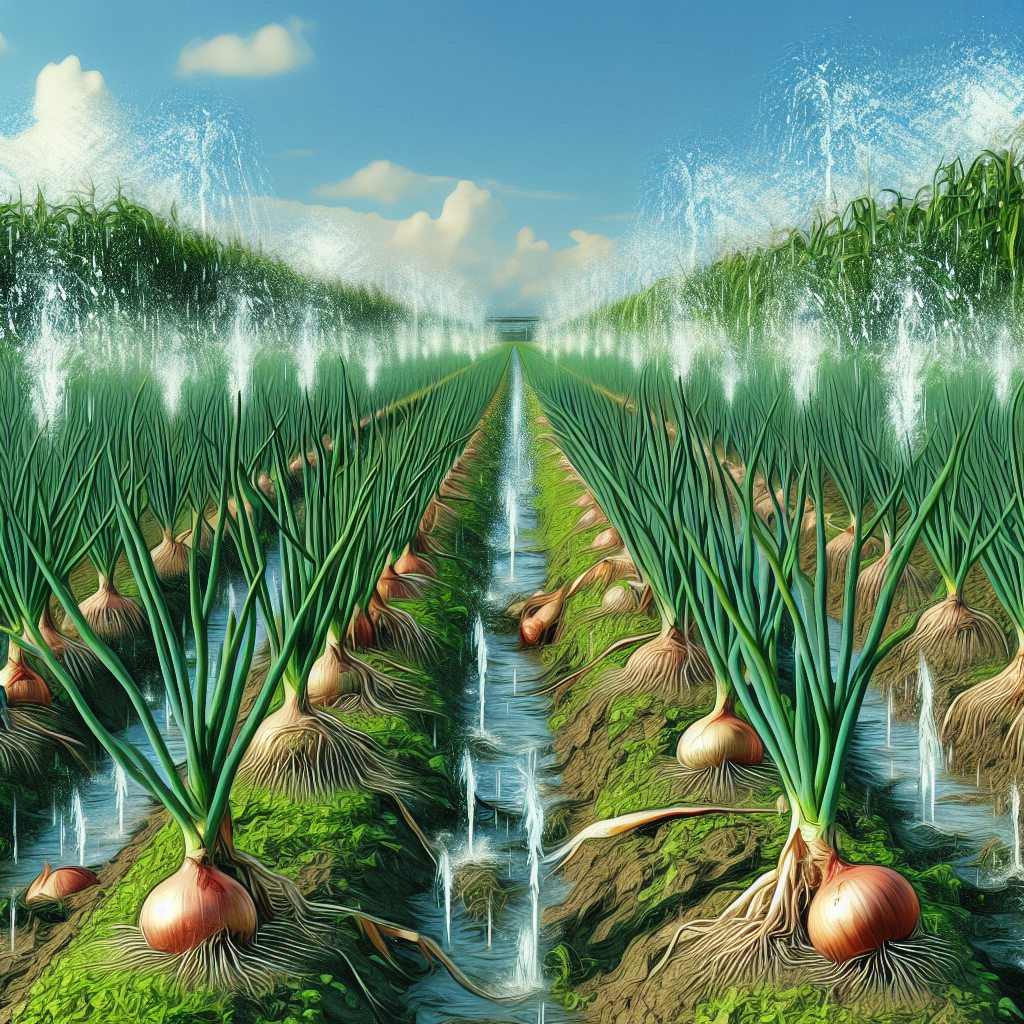Onions are one of the most widely cultivated crops in the world, valued for their versatility in cooking and their numerous health benefits. They are a staple in many cuisines and can be enjoyed raw or cooked in a variety of dishes. In order to produce high-quality onions, it is important to maintain consistent moisture levels throughout the growing season. This article will explore the benefits of consistent moisture levels for thriving onion crops and provide tips on how to achieve optimal moisture management in onion cultivation.
One of the key benefits of consistent moisture levels for onion crops is improved growth and development. Onions require adequate water to grow properly, and fluctuations in moisture levels can hinder their growth. When onions are given a steady supply of water, they are able to develop strong roots and healthy foliage, leading to better overall plant health. Consistent moisture also helps onions establish a strong root system, which is essential for nutrient uptake and water absorption.
In addition to promoting healthy growth, consistent moisture levels can also increase onion yield. Adequate water supply ensures that onions have enough resources to produce large bulbs with high quality flesh. On the other hand, insufficient water can lead to stunted growth and smaller bulb size. By maintaining consistent moisture levels, growers can maximize their yield potential and produce onions that are marketable and profitable.
Another benefit of consistent moisture levels is improved disease resistance. Onions are prone to various diseases, such as damping off, neck rot, and downy mildew, which can be exacerbated by fluctuations in soil moisture. By keeping soil moisture levels stable, growers can reduce the risk of disease outbreaks and minimize crop losses. Consistent watering practices also help prevent stress-related disorders in onions, such as splitting or bolting.
Furthermore, maintaining consistent moisture levels is important for nutrient uptake in onion plants. Water acts as a carrier for essential nutrients from the soil to the roots of the plants. When there is an imbalance in soil moisture, nutrient uptake may be disrupted, leading to nutrient deficiencies or imbalances in the crop. By ensuring that onions receive a steady supply of water throughout the growing season, growers can optimize nutrient absorption and promote healthy plant growth.
Achieving consistent moisture levels in onion cultivation requires proper irrigation management. It is important to monitor soil moisture regularly and adjust irrigation schedules accordingly based on weather conditions and crop needs. Overwatering should be avoided as it can lead to waterlogging and root rot, while underwatering can cause stress and reduced crop yields.
Drip irrigation systems are commonly used in onion cultivation as they provide precise control over water application and minimize wastage. These systems deliver water directly to the root zone of plants, ensuring efficient use of water resources and promoting uniform soil moisture distribution. Mulching can also help conserve soil moisture by reducing evaporation from the soil surface.
In conclusion, maintaining consistent moisture levels is crucial for successful onion cultivation. By providing onions with a steady supply of water throughout the growing season, growers can promote healthy plant growth, increase yield potential, improve disease resistance, enhance nutrient uptake, and ultimately produce high-quality onions for consumption or sale. With proper irrigation management practices in place, growers can ensure that their onion crops thrive and flourish year after year.














